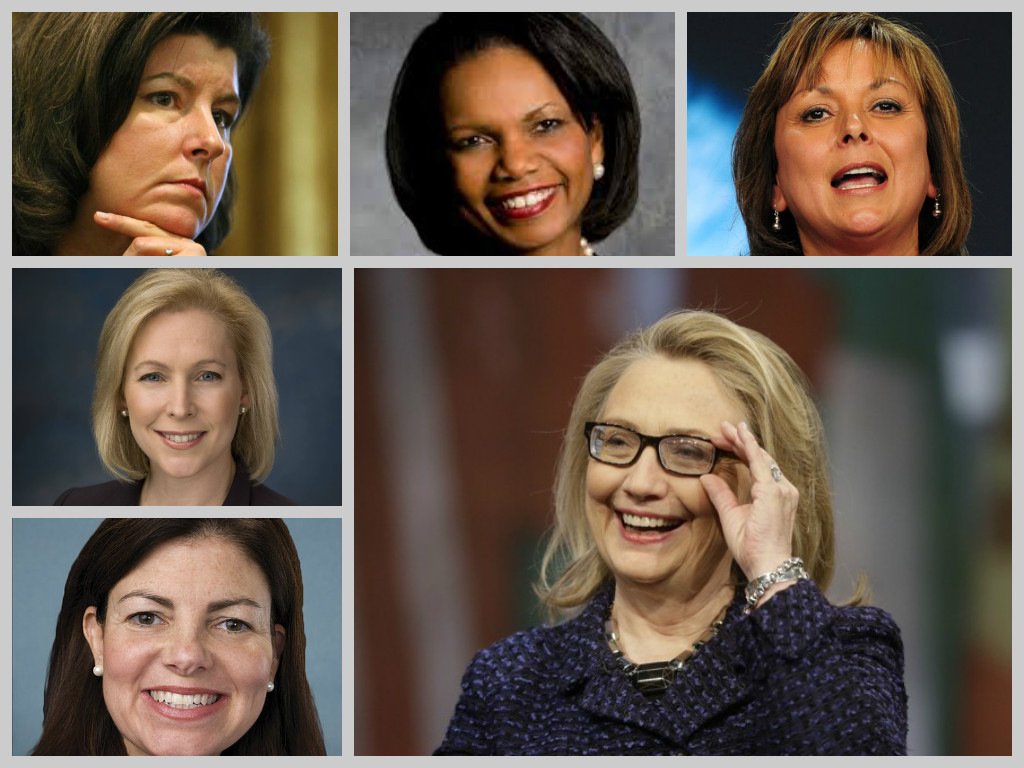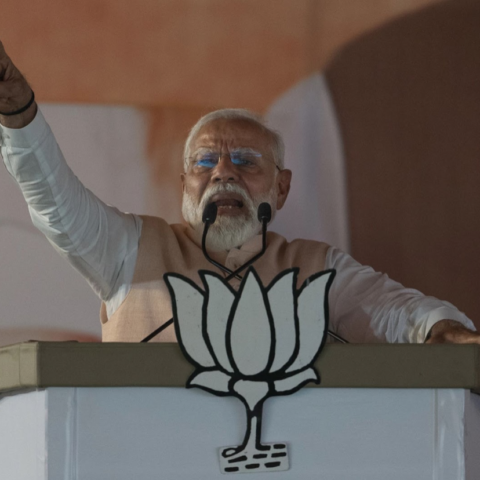By: Nathan Williams
 America’s first forty-four presidents all won the White House with diverse cultural backgrounds and lifestyles. Though the first forty-three share a similar bond as Caucasian males, the precedent was shattered when Barack Obama won election in 2008 as the nation’s first African-American president. He may be more culturally diverse than any of his predecessors, but there is speculation that his successor could topple yet another historic diversity barrier. Number 45 – the next United States president – may very well walk in heels and carry a purse.
America’s first forty-four presidents all won the White House with diverse cultural backgrounds and lifestyles. Though the first forty-three share a similar bond as Caucasian males, the precedent was shattered when Barack Obama won election in 2008 as the nation’s first African-American president. He may be more culturally diverse than any of his predecessors, but there is speculation that his successor could topple yet another historic diversity barrier. Number 45 – the next United States president – may very well walk in heels and carry a purse.
The first “Year of the Woman” in American politics may have been in 1992, but there is reason to believe there could be a second coming soon. Americans believe the country is ready for a female president now more than ever before, according to a recent poll showing 86 percent believe the timing is right. Former Secretary of State Hillary Clinton, the popular wife of former President Bill Clinton, is the overwhelming favorite female potential presidential candidate in 2016. If she pursues the Oval Office, she would likely secure the Democratic nomination early in the race. Clinton consistently tops internal Democratic polls and bests potential GOP rivals in many vital state match-ups, clearly solidifying her position as the potential frontrunner. When asked if the nation is ready for a female leader, however, she responded by saying, “I do want to see that glass shattered. I don’t think it has to be any particular person.” Her comments sustain the possibility that she could choose not to mount a second presidential bid, allowing room for other female candidates to pursue the most powerful position in the world. The candidate bench is deeper than one might imagine.
While most view Clinton as the dominant female presidential contender, the alternative candidate pool is rich in talent should she choose not to run. Potential candidates on the Democratic side include freshman Senator Elizabeth Warren (D-Mass.), a liberal crusader leading the charge against Wall Street, and Senator Kirsten Gillibrand (D-NY), a relatively moderate marriage equality advocate who replaced Clinton in the Senate after her confirmation as Secretary of State in 2009. Potential female Republicans include freshman Senator Kelly Ayotte (R-NH), whose expertise in foreign affairs could frame a powerful campaign, Governor Susana Martinez (R-NM), an effective Hispanic governor who is known for reaching across the aisle, and former Secretary of State Condoleezza Rice, a popular African-American diplomat with high popularity ratings.
But there is a deeper phenomenon at play. Building momentum for female candidates across the state of Georgia is the looming potential that a major female presidential candidate will run in 2016. The preemptive coattail effect is illustrated by the emergence of multiple female candidates pursuing public offices across the nation, noticeably in Georgia. This is an effect other female political role models were not able to accomplish when they emerged on the national stage, including neither former House Speaker Nancy Pelosi (D-CA) in 2006 nor former Gov. Sarah Palin (R-AK) in 2008.
Interestingly, all female candidates within the state are pursuing open seats where the incumbent is either retiring or pursuing a higher office, congruent with the notion that females disproportionately pursue seats without an incumbent on the ballot. The retirement announcement by two-term U.S. Saxby Chambliss has sent shockwaves through Georgia’s political landscape. As of now, there will be four open seat races in 2014 – a Senate seat and three U.S House seats – since three members of the state’s congressional delegation are running to replace Chambliss.
State Representative Donna Sheldon (R-Dacula) became one of the first to announce a District 10 candidacy to replace outgoing Congressman Paul Broun (R-GA) who is running to replace Chambliss. Also running is Tricia Pridemore, the former executive director of the Governor’s Office of Workforce Development. She is pursuing the Republican nomination for the eleventh congressional district currently held by Congressman Phil Gingrey who is also vying for the vacant Senate seat. Both women will likely face contentious primary battles, but are considered serious candidates nonetheless.
Karen Handel, the former Republican Secretary of State, became the latest announced candidate hoping to replace Chambliss in 2014. She ran unsuccessfully for governor in 2010 against eventual victor Nathan Deal, and subsequently served as public policy Vice President for Susan G. Komen. Rumored to be considering a Senate bid is Michelle Nunn, the CEO of Points of Light volunteer organization. She’s the daughter of former Senator Sam Nunn, a Democrat from Georgia who served four-terms as a foreign policy and defense expert. Nunn is considered the leading Democratic candidate.
The prospect of a major female presidential candidate in 2016 has catalyzed a movement not only in Georgia but across the nation heading into the mid-term election cycle. More serious female candidates are now pursuing higher office, likely because they believe the gender norm has diminished. These ladies believe the electorate will be more receptive of a female candidate and that their probability of victory is high given the speculation of a female presidency. We know that more females are running for higher office – but will they win?

